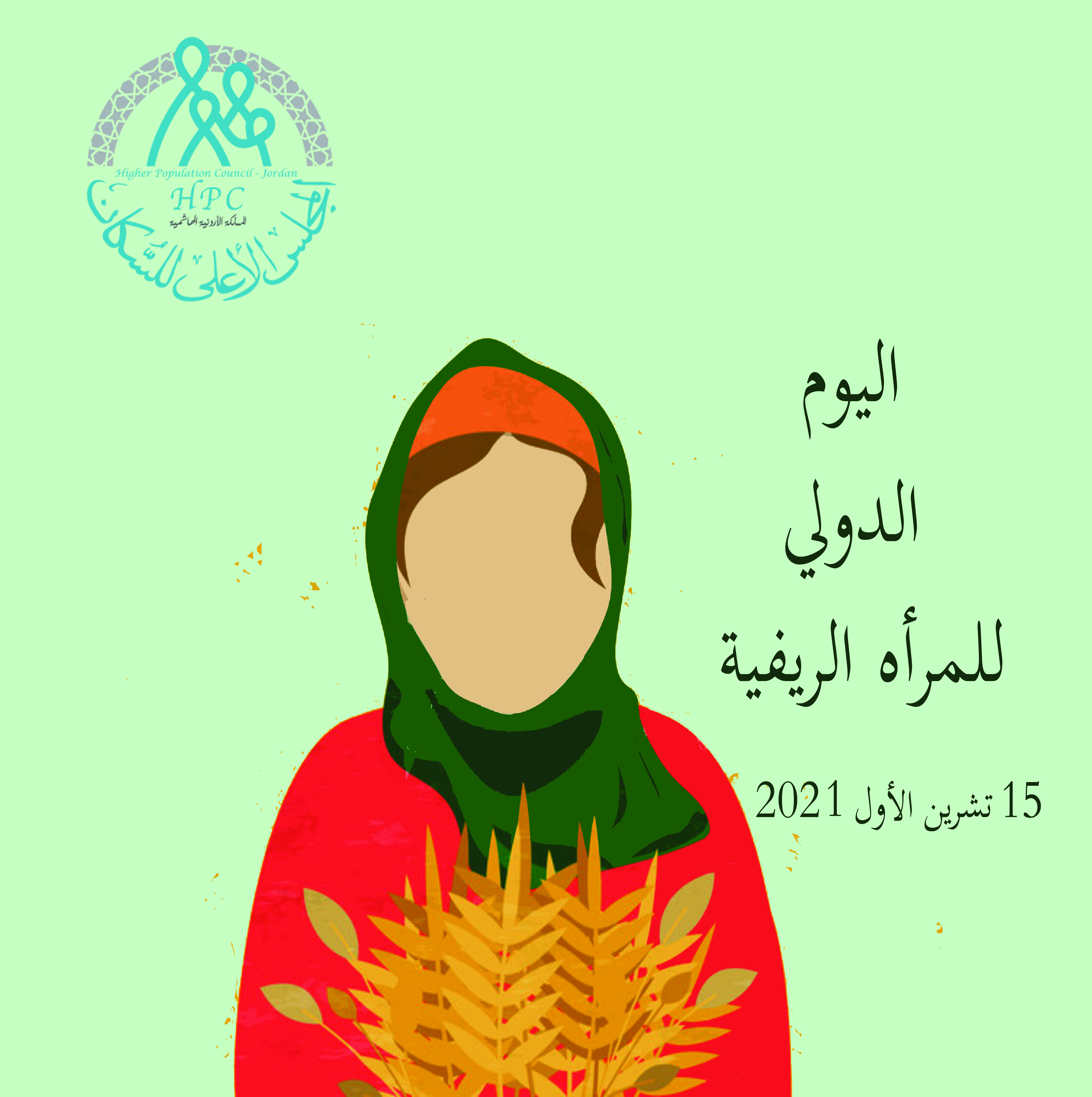

Jordan and the rest of the World will celebrate today, Friday, Day Of Rural Women, which falls on the 15th of October of each year and aims to promote international togetherness, awareness among agricultural and rural development, and improving food security
and the eradication of poverty in the countryside.
Rural women are defined as women who live in the countryside, and often work in agriculture and livestock in rural areas, and the majority of them depend on natural resources and agriculture for their livelihood, and they constitute more than a quarter of the total population of the world, and in developing countries, rural women represent nearly half of the agricultural labor force.
Rural women are defined as women who live in the countryside, and often work in agriculture and livestock raising in rural areas.
Most of them depend on natural resources and agriculture for their livelihood, accounting for more than a quarter of the world's total population, and in developing countries rural women account for almost half of the agricultural labour force.
They produce and prepare many food items, making them essential participants in food security and, given that people living in extreme poverty are in rural areas, ensuring rural women's access to agricultural productive resources contributes to reducing global hunger and poverty and makes them an important element for the success of the 2030 sustainable development agenda.
Annual celebration aims at appreciating rural women for their important role in enhancing the agricultural and rural development, improving food security level, and ending rural poverty. Furthermore, the celebration sheds light on the role of rural women and girls in building resilience and viability to face climate change.
In a special press release on this occasion, the Higher Population Council stated that Jordan affirmed its commitment to promoting the development of rural woman through its commitment to the 2030 Sustainable.
Amawi indicated that women and girls in rural areas face challenges in their daily lives, as they suffer more than others from poverty in all its forms. For instance, women farmers may be as productive and entrepreneurial as their male counterparts. But, they suffer from limited ownership of agricultural.holdings.However, they suffer from limited ownership of agricultural holdings, which does not exceed 6% of the total agricultural holdings in the Kingdom, and their access to markets and high-value agricultural food chains, they are also more likely to get lower prices for their crops, in addition to that restrictive social norms can limit rural women's ability to access health services, and they face many challenges that men do not face, as they have less access to resources and services including lands, finance, training, inputs and equipment.
Jordan was committed to the importance of supporting rural women through its commitment to sustainable development goals 2030 and the Convention on the Elimination of All Forms of Discrimination against Women, where article 14 provided for the contribution of rural women to poverty reduction, food security and nutrition, and It calls upon Member States to respect and enforce the rights of rural women as they relate to access to productive resources and participation in decision-making, indicating that treating women as partners in sustainable development rather than as victims will benefit all and lead to a rapid recovery of food production and poverty eradication .
Amawi indicated that the national statistics in Jordan, according to the results of the 2015 census, indicated that the percentage of the population in the countryside is 9.7%, compared to 90.3 in the urban area, and the average size of the rural family is about 4.9 individuals, compared to about 4.7 An individual for an urban family.
According to the Public Statistics Service for 2020, Jordanian women aged 15 and over in rural areas account for 10.8% of all Jordanian women aged 15 and over. The unemployment rate for Jordanian women living in rural areas is 29.4%, this confirms the challenges of living as a result of the poor economic situation facing rural women, which delays their recovery and the development of life. Statistics also indicate that the illiteracy rate for Jordanian women living in rural areas is 11.5%, of all Jordanian women aged between 15 and over, this contributed to an increase in the lack of knowledge for women, which negatively affects the family and societal levels. In addition, the revised economic participation rate for them reached 15.8%, and the percentage of working women reached 12.3%. for the same category.
In the statement, the Higher Population Council pointed out that the spread of the Corona pandemic affected all societies, including poor rural communities and farmers, who faced challenges in the areas of poor resilience, food security, and limited access to resources and services.
The Council recommends the importance of strengthening strategies, initiatives and interventions that aim to raise the status of rural women, and to empower them in the economic aspect, by providing training programs and enhancing competencies, and providing financial support that allows them to have opportunities for financial independence and work to increase their status, so that they can take their expected leading role in the renaissance and development of society.







